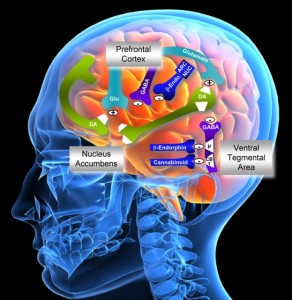
I know this may sound a bit incongruous in light of my touting the benefits of mindfulness meditation for so many years but there are many kinds of meditation and mindfulness meditation is less prone to addiction than the others that I know of. Although I have seen mindfulness meditation addiction in rare cases (usually caused by a misunderstanding of approach) I have seen meditation addiction in many other cases. Some of the meditation approaches I am speaking of are mantra, visualization, breathing meditation/exercises(pranayama yoga), prayer, progressive relaxation, and concentration meditation that puts your focused attention on something outside of you. The reason these types of meditation can be addictive(but not necessarily) is because they can be very pleasant and can facilitate “escaping from situations that are unpleasant. Sound familiar? This is really the way all addictions start. We find ourselves in a situation that we don’t like and we look for ways to disconnect from the unpleasantness. Granted, there are much worse things to get addicted to, but ultimately we want to rid ourselves from these ways of disconnecting, come into the present moment and fully experience what life has to offer….pleasant and unpleasant.
So how do we know when we are addicted to meditation? When we are having great, pleasant, illuminating etc. meditations that end when the meditation ends we can suspect that there may be an addiction/attachment to it. There is also a tendency to spend more time than necessary in meditation. I’ve seen many people over the years who have great meditations but when they return to daily life there is no spill over of the experience. There is a return to the unpleasant situation that they left prior to meditation. In fact, they are using the meditation as an escape from their everyday life. As I mentioned before, all these different types of meditation don’t have to be addictive. The remedy to this situation is to be anchored in the present moment while exploring “other” experiences through the various types of meditation. As long as we bring this mindful quality to our explorations we avoid falling into the addiction/attachment/escape of our meditation adventures. Mindfulness is really too broad to be considered a meditation approach but in the kind of world that we live in it is so different than the norm that for now we can call it mindfulness meditation leading to mindfulness in daily life…the successful spillover of the meditation into every aspect of living.

Where can I get more about this?
My student is suffering from this problem.
Meditation creates a chaos in his family life.
This phenomena is not well known. Less meditation would be beneficial in this situation or perhaps mindful movement until the addiction is loosened.